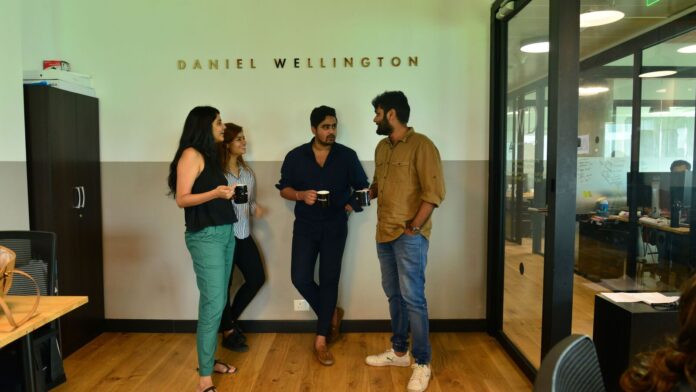A 24-year-old walked into his office space. It was 4pm. He was expected to work from the employer’s headquarters in Mumbai, four days a week. He latched onto snippets of gossip from the few colleagues he spotted, did the bare minimum required of him, and left at 7pm. In between coffee breaks, he met the boss and exchanged some notes. His team members were not around. They had come in earlier in the day and left by 4pm.
Now, you cannot blame anyone. The team followed the office diktat of coming to work on scheduled days. The company wanted employees working at their work-stations, with minimal water-cooler chats. Alas, it got ‘coffee badgers’ instead.
‘Coffee badging’ is a post-work-from-home phenomenon. The archetypal coffee badger comes to office, punches in his or her attendance, hangs around for a few hours to chat with—and be seen by—others, and then leaves for home to work remotely.
Also Read: What Indians think of the work-from-home shift
Coffee badgers were few and far between when companies first started calling their workforce back to their office stations. But once the pressure of returning mounted, with appraisals and bonuses getting tagged to working from office, employees revolted. Coffee badging became their way.
The human resources (HR) head of a business house is surprised at how long it is taking to get the workforce not just physically back to office, but convincing them to bring their ace game along as well. “Employee engagement, unlike compliance, is more complex—with no absolute right or wrong. A lot of deliberations take place to come up with what is being offered and what is denied to employees,” said the HR chief who did not want to be named.
According to him, coffee badging is the result of firms often focusing largely on the country’s urban talent pool. “Bring in more of the workforce from smaller towns,” he added, “and there is a marked difference between working styles. Flexibility is often a choice and choices have consequences.”
Also Read: American employees have lost their post-pandemic leverage in the labour market
Earlier this month, JPMorgan Chase’s CEO Jamie Dimon decried flexibility and its impact on the quality of work. According to a Reuters report, the CEO in a staff meeting said that employees were distracted during Zoom meetings, which in turn impacted efficiency and creativity.
Meanwhile, more than 900 employees have signed a petition against the bank’s five-day work policy. This is only a small fraction of the lender’s total workforce and it is unlikely to budge on its return-to-office mandate.
It is also unlikely that coffee badgers will give in easily. There is a fundamental question that needs to be asked: What does one expect out of office hours?
Many employees no longer look at their office premises as a place they go to get work done and meet their key-result-area targets. Instead, they would rather spend that time to mingle with colleagues, thrash out life’s road blocks and maybe laugh them off. An office visit offers relief from their otherwise mundane daily schedules and offers them a chance to socialize
For an earlier generation, office spaces offered a comforting sense of uniformity. They also fostered a sense of belonging. Many were proud of the cubicles they had, especially in well-appointed work spaces.
But for the younger workforce, a significant part of their higher education was spent in their rooms during the pandemic. Getting a job was the next step, but they have grown accustomed to working in isolation, with just a phone or laptop as their link to others for any interaction. For them, heading to an office station holds no charm and camaraderie among colleagues is not something to covet.
Their big question is this: Why clock in 8-10 hours at an office desk when the same work can get done in far less time at home sans distractions? This thought has influenced older generations as well. Coffee badgers now are age-agnostic.
Also Read: Work-from-home has reduced people’s tendency to socialize
What they do not realize is that employers will initially pacify and cajole. The next stage may be warnings, followed by tough action. India Inc seems to be at the second stage. Return-to-work enforcement has seen high employee churn across the world, and the same might be seen in India, where big-city commutes remain a matter of hardship. But there would be workers that employers are ready to lose. Businesses can be expected to take a close look at coffee badgers, whose tenure may be on a shorter countdown than they realize.
In the West, coffee badgers and advocates of remote work have been blamed for diluting workplace racial and gender integration. In India, how working together can help overcome prejudices is a topic rarely explored. It is unlikely, though, that remote work can serve the cause of an unbiased workplace well.
Also Read: India Inc must stand by DEI: It’s both a social and business imperative
Coffee badgers may get pushed out of work, but the chasm between what firms and their employees want could remain wide. Businesses ultimately look for return on investment and enhancing shareholder value. What serves those ends best may take time to settle. All hands on deck versus remote work may depend on the objectives to be met. Since work efficiency matters, coffee badging can’t survive for long.
The author writes on workplaces and education at Mint.
#Coffee #badgers #corporate #offices #expect #survive
